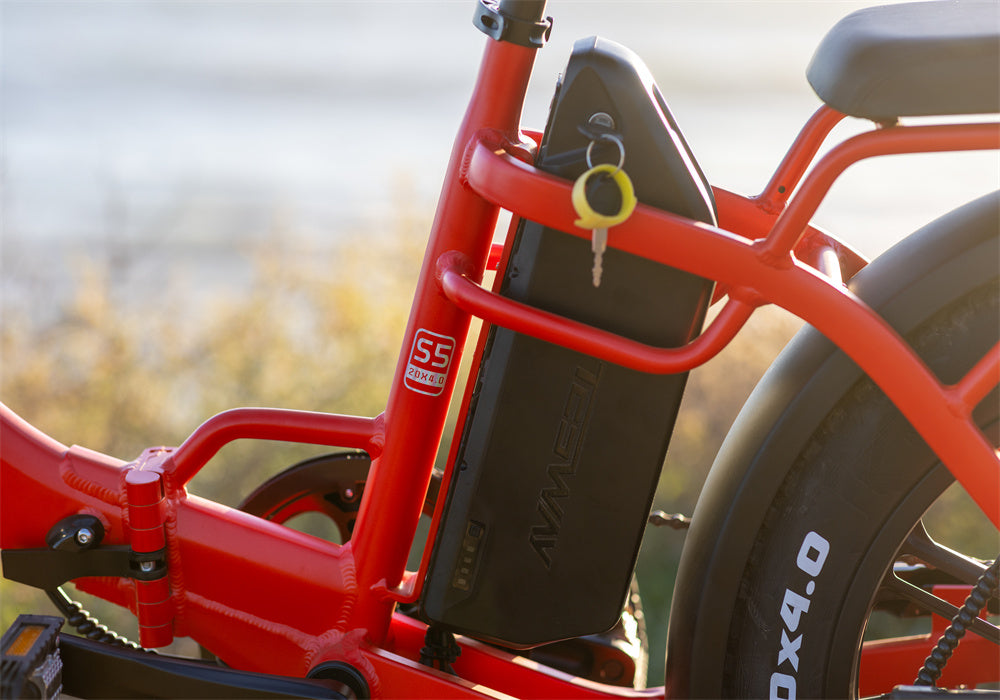Electric bikes have gained a lot of popularity lately because they are a handy choice for commuting, doing errands, or just for fun rides. The great news is that many states in the U.S. offer rebates and tax credits to encourage people to ride e-bikes.
Eligibility Criteria for E-Bike Rebates
Before diving into the specific rebates available in each state, it is crucial to understand the common eligibility criteria that generally apply to these programs. Eligibility often varies by state but typically includes:
Type of E-Bike: Most programs specify the type of e-bike eligible (e.g., Class 1, Class 2, and Class 3), with particular focus on pedal-assist models.
Residency Requirements: Applicants usually need to be residents of the state from which they are claiming the rebate.
Purchase Requirements: Rebates may require the e-bike to be purchased from a licensed retailer within the state.
Application Process: Most states require applicants to complete a specific form and provide proof of purchase.

California’s E-Bike Rebate Programs
California, a leader in environmental initiatives, offers several rebate programs aimed at increasing e-bike accessibility:
-
California Clean Vehicle Rebate Project (CVRP):Offers up to $750 for the purchase of a new e-bike. This program is designed to complement the state's goals for greenhouse gas reductions.
-
Bay Area Air Quality Management District:Provides a rebate of up to $300 for residents purchasing an e-bike or converting their bicycles into e-bikes.
- San Diego’s “Pedal Ahead” Program:This innovative program lends e-bikes to eligible participants for up to two years, encouraging commuting by e-bike.
Colorado’s Tax Credits and Rebate Opportunities
Colorado offers unique incentives for e-bike purchasers, focusing on tax credits and direct rebates:
- Colorado Electric Vehicle (EV) Tax Credit: While primarily for electric vehicles, this credit also applies to electric bikes, allowing buyers to claim up to $500 in tax credits for their e-bike purchase.
- Denver’s E-Bike Rebate Program: Launched as a pilot, this program provides a rebate of $400 for the purchase of an e-bike, with an additional $200 available for low-income applicants.

Washington State’s Green Transportation Initiatives
Washington State encourages the use of e-bikes through various programs that emphasize sustainability:
- Seattle’s E-Bike Rebate Program: Offers a rebate of $200 to $500, varying by income level, to make e-bike purchases more affordable for a broader range of people.
- Clean Alternative Fuel Vehicle (CAFV) Tax Exemption: Exempts certain alternative fuel vehicles, including e-bikes, from sales and use taxes, providing substantial savings on upfront costs.
Oregon’s E-Bike Incentive Programs
Oregon is well-known for its environmentally conscious policies and has implemented several programs to support e-bike adoption:
- Rebate: This program offers up to $250 for the purchase of a new e-bike. Additional incentives are available for low-income buyers, who can receive up to $750 off the purchase price.
- Portland’s Go By Bike Incentive: In an effort to reduce urban congestion and promote healthier living, Portland offers a subsidy for e-bike purchases that is particularly targeted towards daily commuters.

Illinois and Chicago’s E-Bike Support Programs
In Illinois, particularly in Chicago, there has been a growing recognition of the benefits of e-bikes in urban settings:
- Illinois Electric Bicycle Rebate Act: Proposed in recent legislation, this act would offer a rebate of 25% of the purchase price of an e-bike, up to $500, to encourage residents to opt for greener transportation options.
- Chicago’s Ride Electric Program: This pilot program aims to provide rebates that can cover up to $300 of an e-bike purchase, with a focus on ensuring that all communities, especially underserved ones, have access to affordable e-bike options.
Minnesota’s Clean Transportation Incentives
Minnesota offers various incentives designed to increase the accessibility of e-bikes to its residents:
- Minnesota E-Bike Rebate Program: Offers a rebate of up to $500 for the purchase of e-bikes, with a simplified application process to ensure broad participation.
- Twin Cities E-Bike Initiative:Focuses on metropolitan areas, offering additional incentives for e-bike purchases and sharing systems to enhance urban transport efficiency and reduce carbon footprints.

Massachusetts’ Green Commute Solutions
Massachusetts has also recognized the potential of e-bikes to transform urban mobility:
- Massachusetts Offers Rebates for Electric Vehicles (MOR-EV): While primarily focused on electric cars, this program has expanded to include e-bikes, offering a rebate of up to $500.
- Boston’s Bikes for All: A program that aims to make e-bikes accessible to a wider demographic by providing financial assistance that reduces the cost of e-bike ownership, thereby promoting a more inclusive approach to green transportation.
Florida’s Emerging E-Bike Rebate Programs
Florida, while known for its sprawling urban landscapes and reliance on automobiles, is beginning to embrace the e-bike movement:
- Florida Clean Energy Rebate Program: Although still in the proposal stages, this program aims to offer up to $400 for the purchase of an e-bike, encouraging residents to consider alternative transportation methods that contribute less to congestion and pollution.
- Miami-Dade Green Mobility Initiative: This local initiative offers a rebate program that reduces the purchase price of e-bikes by up to $300, with the goal of promoting healthier, more sustainable travel options in one of the most densely populated areas of the state.

Texas’s Incentives for E-Bike Purchasers
Texas, with its vast distances and extensive urban centers, has recognized the value of e-bikes in reducing traffic and emissions:
-
Texas E-Bike Rebate Initiative: Offers a rebate of up to $250 for residents who purchase e-bikes, aiming to cut down on vehicular traffic and support cleaner air initiatives.
- Austin Energy’s Electric Drive Program: Specifically focuses on promoting electric vehicles, including e-bikes, by offering rebates and establishing additional charging stations throughout the city.
Nevada’s Approach to E-Bike Adoption
In Nevada, where cities like Las Vegas experience significant traffic, e-bikes offer an attractive solution for reducing roadway congestion:
- Nevada Clean Air Initiative: Provides rebates of up to $300 for the purchase of e-bikes as part of a broader strategy to improve air quality and reduce reliance on traditional combustion engines.
- Las Vegas Valley E-Bike Expansion Program: Aims to encourage the use of e-bikes through financial incentives and by improving the infrastructure for cyclists throughout the city.

Where Can You Buy A Best Value Ebike?
Looking for an e-bike that combines quality, versatility, and affordability? TESWAY offers some of the best value e-bikes on the market, catering to a wide range of needs and preferences. Whether you're in the market for a commuter e-bike to streamline your daily travel, a robust fat tire e-bike ready for adventurous terrains, or a convenient folding e-bike for easy storage and transport, TESWAY has you covered. With models priced between US$799.99 and US$1,599.99, TESWAY e-bikes are exceptionally wallet-friendly, ensuring that even those on a tight budget can access top-tier biking experiences.
FAQs
What are the typical speed limits for e-bikes?
E-bike speed limits typically range from 20 to 28 mph, depending on the bike’s class. Class 1 and 2 e-bikes are generally capped at 20 mph, while Class 3 e-bikes can go up to 28 mph.
Are e-bikes safe to use in all weather conditions?
E-bikes are designed to be robust and can be used in various weather conditions, but it’s important to exercise caution during extreme conditions such as heavy rain or snow, which may affect traction and visibility.
How do I dispose of an e-bike battery safely?
E-bike batteries should be disposed of at designated recycling centers that handle electronic waste, as they contain materials that can be harmful to the environment if not processed correctly.







Share:
Signs Your E-Bike Battery May Need Replacement
TESWAY Folding Electric Bike Review